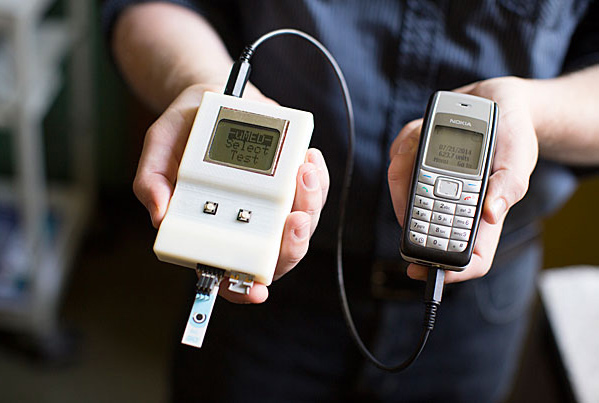A $ 25 mini-lab was created at Harvard to identify a number of diseases.

Usually, when it comes to medicine and medical gadgets, the amounts mentioned, the price of these gadgets, surprise even professionals. So, a portable ultrasound scanner, which was recently written on Habré, costs about 17 thousand US dollars.
It is clear that such devices are not created for ordinary users, home use, but still the prices are quite high. But there are exceptions: the Harvard development team presented a portable detector, a mini-laboratory, the price of which is only $ 25.
')
In this case, the device can perform a number of medical tests, which are usually quite expensive and performed for a long time. Here, all work is done in a matter of minutes, and the result is transmitted via cable to the audio jack of a mobile phone. and further, on cellular communication, to the server. Such a device can be used everywhere where there is at least a weak signal of the cellular network: the medical institution will receive data captured by the device, even from a remote African village.
In its work, the device uses a number of electroanalytical methods: chronoamperometry, cyclic voltammetry, differential pulse voltametry, potentiometry, etc.). As a result, the mini-laboratory allows for the following tests:
- determination of blood glucose levels;
- determination of the content of heavy metals in water, including lead, cadmium, zinc;
- determination of sodium in the body;
- detection of malaria antigen (i.e. detection of the fact of malaria).
All this - with a small size, low-cost production and easy data transfer. Such a device can be used in the most remote places where there is only a cellular connection, while there is no need to take a patient from a remote village to the hospital, sometimes hundreds of kilometers away. Five copies of the device have already been sent to India to test the performance of the mini-laboratory in the field.
Via harvard
Source: https://habr.com/ru/post/234705/
All Articles